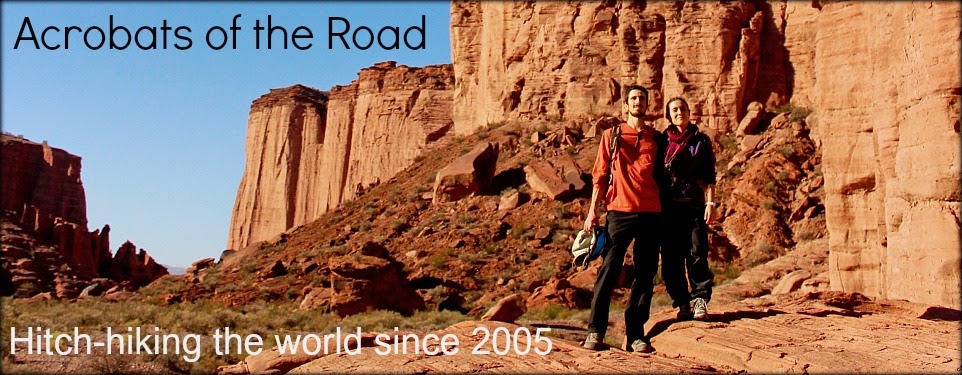
Eduard combines the esthetics of a nobleman of the Carpathians with accent for English in the style of Bart Simpson’s. Two months had passed since last time we had met, in the Rainbow Gathering in Dividalen, Norway. He was played now as local, in his native Sinaia, nicknamed “Pearl of the Carpathians” by the first king of Romania Carol the First. The first Romanian monarch was actually German, from the house of Hohenzollern, and as judged by the way he decorated his castle he never felt a down-to-earth conexion with the world around him (Romania). On the contrary, Peles Castle is an ode to a negative world, to all that Romania is not. Entire rooms are replicas after originals in other Eurpean palaces and castles, from Granada’s Alhambra to Florentine and Venetian palaces. Eduard loves Romania as much as Carol I did: often he says how much he hate it. Eduard’s enthusiasm for all things slightly alternative is only matched by his enthusiasm for big businesses that may help him to finnance his trips. So you can see him on the phone as he tries t convince a Canadian partner to start a company selling air purifiers in Bucarest, with hipothetic earnings of up to a millon dollars a year. Next, he hangs down the phone and explains me how to get to Bucarest with three euros.
Tiraspol is the capital of a country that doesn’t exist: the Republic of Trans Nistria. In Sinaia I started to make enquires about getting there. In 1990, as Moldava was spliting from Romania, Trans Nistria declared independence (never recognized) from Moldova. As one Eastern European country after another were turning to market economies, trans Nistria explicitly supported the soviet communist system, and becoming the European last bastion of it, with logistic support from the 14th Russian Army, a tender bunch that Moscow forgot (could not) relocate. The winds of change Scorpions sang about seem have been blocked by the Carpathians.
Getting to a country that doesn’t exist is, by itself, difficult. Add to that the burocracies. Officialy part of Moldova, a Moldovan visa is required to entry Trans Nistria. Being a complex paperwork, I decided to head straight to it, visaless, and try to enter Tgrans Nistria at a point where central Moldovan customs had no representation. That meant travelling to Odessa, in Ukraine, in giving it a try from there, directly to Tiraspol without getting trough Chisinau.
The trip was long, with notable assistance received from people working in petrol stations. If hitchhikers had a God’s Pantheon, the petrol station employees would defenitely had a space on the shelf. When night had isolated me in a small petrol station in Bacau, it was the young lad filling the tanks who found for me a car going to Suceava, 50 kms before Ukrainian border. Morover, he had no need to hand me a bottle of mineral water before I left. The driver’s name was Robert, and he run his own publicity business. When we arrived in Suceava, around 11 pm, he could then afford to put me up in a hotel. He later confessed that when he was 20 he dreamt of a money-less world, where everybody would take only enough for his needs. A system based on trust we are defenitely not ready for. But he considered that me challenge had to do with his dream and that he was substantially helping me to accomplish his dream.
Tiraspol is the capital of a country that doesn’t exist: the Republic of Trans Nistria. In Sinaia I started to make enquires about getting there. In 1990, as Moldava was spliting from Romania, Trans Nistria declared independence (never recognized) from Moldova. As one Eastern European country after another were turning to market economies, trans Nistria explicitly supported the soviet communist system, and becoming the European last bastion of it, with logistic support from the 14th Russian Army, a tender bunch that Moscow forgot (could not) relocate. The winds of change Scorpions sang about seem have been blocked by the Carpathians.
Getting to a country that doesn’t exist is, by itself, difficult. Add to that the burocracies. Officialy part of Moldova, a Moldovan visa is required to entry Trans Nistria. Being a complex paperwork, I decided to head straight to it, visaless, and try to enter Tgrans Nistria at a point where central Moldovan customs had no representation. That meant travelling to Odessa, in Ukraine, in giving it a try from there, directly to Tiraspol without getting trough Chisinau.
The trip was long, with notable assistance received from people working in petrol stations. If hitchhikers had a God’s Pantheon, the petrol station employees would defenitely had a space on the shelf. When night had isolated me in a small petrol station in Bacau, it was the young lad filling the tanks who found for me a car going to Suceava, 50 kms before Ukrainian border. Morover, he had no need to hand me a bottle of mineral water before I left. The driver’s name was Robert, and he run his own publicity business. When we arrived in Suceava, around 11 pm, he could then afford to put me up in a hotel. He later confessed that when he was 20 he dreamt of a money-less world, where everybody would take only enough for his needs. A system based on trust we are defenitely not ready for. But he considered that me challenge had to do with his dream and that he was substantially helping me to accomplish his dream.

No comments:
Post a Comment